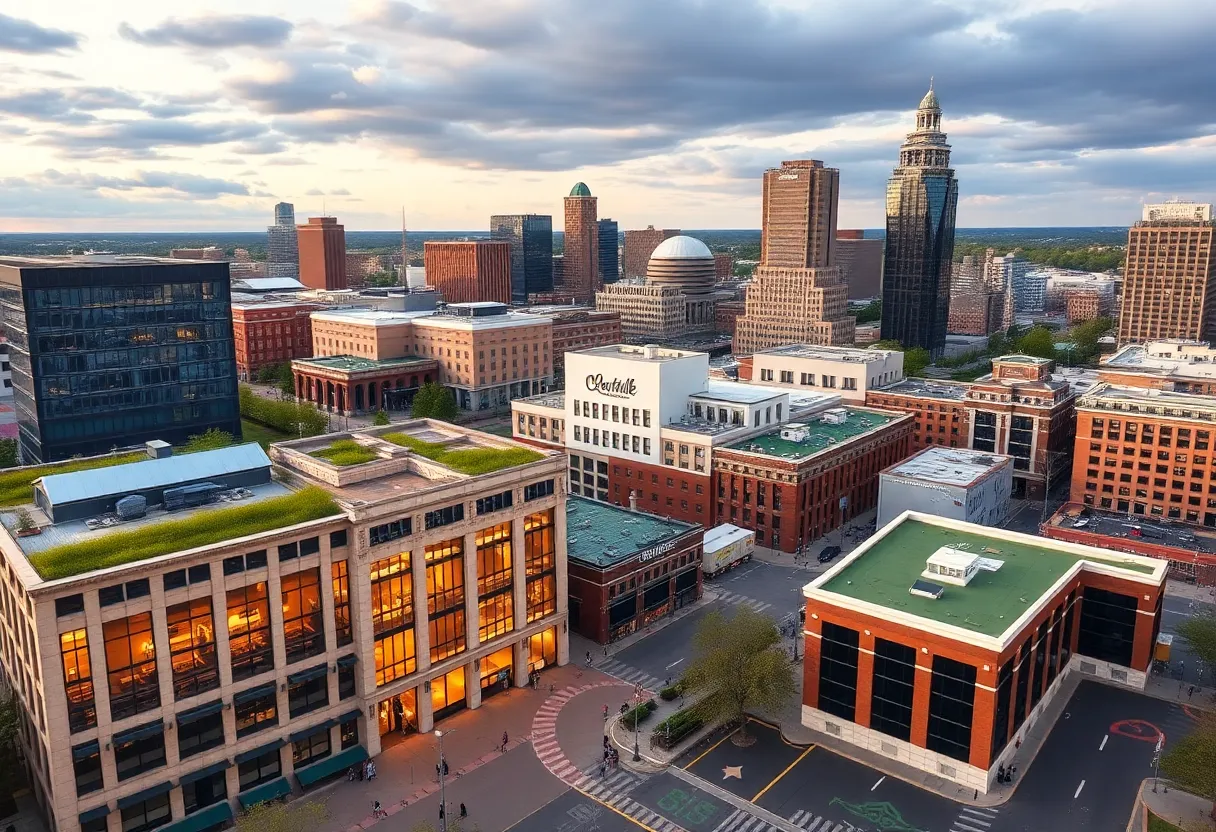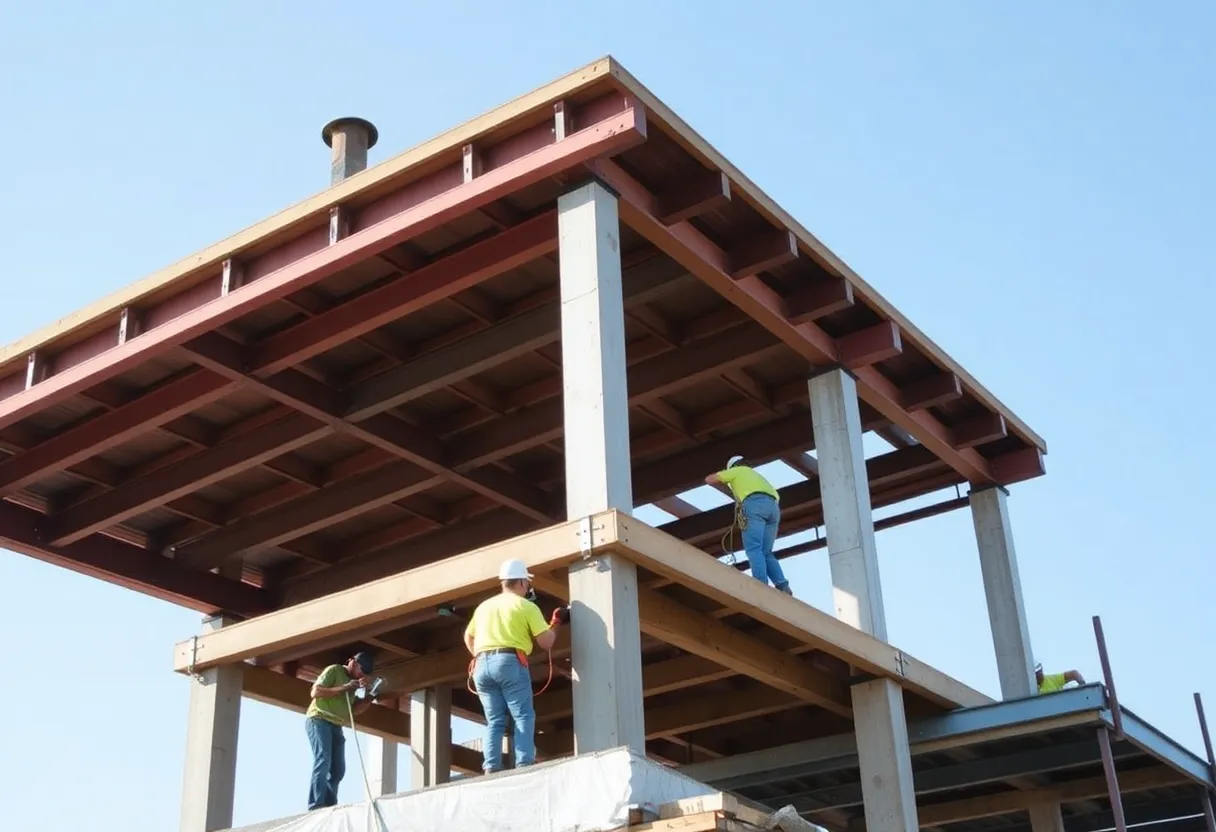News Summary
Tampa, Florida, has approved a $50 million smart city district development aimed at enhancing urban living through innovative infrastructure. This project features solar-powered streets and AI traffic systems designed to improve efficiency, sustainability, and reduce carbon emissions. Set to be completed by 2027, the initiative not only upgrades the city’s infrastructure but also creates jobs and positions Tampa as a leader in Southeast urban planning.
Tampa Approves Smart City District Development
Tampa, Florida, has recently approved a major development for a smart city district, focusing on innovative infrastructure to enhance urban living. This project includes solar-powered streets and AI traffic systems, aiming to improve efficiency and sustainability. Valued at $50 million, the initiative is expected to set new benchmarks in Southeast urban planning and reach completion by 2027.
The approval marks a significant step forward in modernizing the city’s infrastructure. City officials have outlined plans that prioritize energy efficiency and traffic management, with the solar-powered streets designed to reduce reliance on traditional energy sources. These features will incorporate advanced technology to harness sunlight for lighting and power needs, while AI systems will analyze traffic patterns in real-time to optimize flow and reduce congestion. This approach is anticipated to lower carbon emissions and enhance resident safety.
Supporting details reveal that the project will span several key areas of the city, integrating these technologies into existing urban frameworks. The $50 million investment covers design, construction, and implementation phases, drawing from expertise in sustainable engineering. Officials estimate that the development will create jobs in construction and technology sectors, boosting the local economy. The timeline projects initial groundwork starting within the next year, with full completion targeted for 2027, allowing for phased testing of the systems to ensure reliability.
Background context highlights the growing trend of smart city initiatives across the Southeast. Urban areas are increasingly adopting technology-driven solutions to address challenges like population growth and environmental concerns. In Tampa, this project builds on previous efforts to upgrade public infrastructure, positioning the city as a leader in regional planning. By incorporating solar-powered streets and AI traffic systems, the venture aligns with broader goals for sustainable development, potentially influencing similar projects in neighboring states.
The initiative’s focus on innovative infrastructure underscores a commitment to long-term benefits, such as reduced energy costs and improved quality of life. Experts note that such developments can serve as models for other cities, demonstrating how technology can integrate seamlessly into urban environments. While specific details on partnerships and funding sources remain part of ongoing planning, the project’s emphasis on the Southeast’s urban evolution provides a clear path for future expansions.
Further expanding on the project’s scope, the smart city district will feature interconnected systems that promote data-driven decision-making. For instance, the AI traffic systems will use sensors and algorithms to predict and manage peak traffic times, potentially cutting commute times by up to 20 percent based on similar implementations elsewhere. Solar-powered streets will not only illuminate roadways but also support electric vehicle charging stations, encouraging greener transportation options.
This development comes amid a wave of construction activities in the Southeast, where cities are prioritizing resilient and tech-savvy infrastructure. Tampa’s approach emphasizes collaboration between local government and industry experts to ensure the project meets high standards. By setting a precedent in the region, it addresses key issues like climate change and urbanization, making it a noteworthy advancement in modern city planning.
Looking ahead, the project’s completion by 2027 will allow Tampa to evaluate its impact on daily life, including potential reductions in pollution and energy use. This forward-thinking strategy could inspire other Southeast communities to adopt comparable measures, fostering a network of interconnected smart cities.
To delve deeper, the $50 million budget allocates funds for cutting-edge materials and technology, ensuring durability and adaptability. Officials have stressed the importance of community involvement, with public feedback shaping aspects of the design. Overall, this project represents a balanced blend of innovation and practicality, aimed at creating a more efficient and sustainable urban landscape in Tampa.
Project Overview
In summary, the smart city district in Tampa involves a comprehensive overhaul of infrastructure, with solar-powered streets providing renewable energy and AI traffic systems enhancing mobility. This $50 million effort is poised to elevate standards in Southeast urban planning, with a completion date set for 2027.
Expected Outcomes
The development is expected to yield benefits such as improved air quality, reduced traffic accidents, and energy savings. By integrating these elements, Tampa aims to create a blueprint for future urban projects in the region, supporting economic growth and environmental stewardship.
Continuing the narrative, the project’s approval reflects a broader commitment to innovation in the Southeast, where urban centers are racing to adapt to technological advancements. This initiative in Tampa could serve as a catalyst for similar endeavors, promoting a more connected and efficient network of cities.
Adding more depth, the incorporation of AI will involve machine learning algorithms that adapt to changing conditions, such as weather or events, ensuring optimal performance. Solar components are designed to withstand Florida’s climate, with built-in resilience features to handle hurricanes and heat. These details underscore the project’s thorough planning and potential for long-term success.
The smart city district’s development is not just about technology; it’s about building a sustainable future. By focusing on these key areas, Tampa is taking proactive steps to address modern urban challenges, making it a pivotal story in the region’s construction news.
Frequently Asked Questions
What has Tampa approved for development?
Tampa has approved development of a smart city district with innovative infrastructure.
What features are incorporated in the project?
The project incorporates solar-powered streets and AI traffic systems.
What is the cost of the venture?
The venture is valued at $50 million.
What standards does this set?
It sets standards for Southeast urban planning.
When is completion expected?
Completion is expected by 2027.
Who is involved in the project?
City officials are overseeing the project, as per the approval details.
Key Features Chart
| Feature | Description | Expected Benefit |
|---|---|---|
| Solar-Powered Streets | Use of solar energy for street lighting and power | Reduces energy costs and promotes sustainability |
| AI Traffic Systems | Real-time analysis and management of traffic flow | Improves safety and reduces congestion |
| Project Cost | $50 million investment | Supports economic growth and infrastructure upgrade |
| Completion Timeline | Expected by 2027 | Allows for phased implementation and testing |
| Regional Impact | Sets standards for Southeast urban planning | Influences future developments in the area |
Deeper Dive: News & Info About This Topic
Construction FL Resources
Global BIM Market Accelerates as USACE Buffalo District Expands Use
Construction begins on 13‑story mass timber student housing at 9th and High in Columbus
Tech Titans Awards in Frisco Honor North Texas Technology Leaders
JLL Arranges $28M Loan for URBANIA® Flagler 1st Ave and Brokers $117M Rivr Lofts Refinance in Fort Lauderdale
California utilities race to bury power lines to cut wildfire risk
Construction Financing Secured for New Student Housing Near University of Michigan
Author: Construction FL News
The FLORIDA STAFF WRITER represents the experienced team at constructionflnews.com, your go-to source for actionable local news and information in Florida and beyond. Specializing in "news you can use," we cover essential topics like product reviews for personal and business needs, local business directories, politics, real estate trends, neighborhood insights, and state news affecting the area—with deep expertise drawn from years of dedicated reporting and strong community input, including local press releases and business updates. We deliver top reporting on high-value events such as the Florida Build Expo, major infrastructure projects, and advancements in construction technology showcases. Our coverage extends to key organizations like the Associated Builders and Contractors of Florida and the Florida Home Builders Association, plus leading businesses in construction and legal services that power the local economy such as CMiC Global and Shutts & Bowen LLP. As part of the broader network, including constructioncanews.com, constructionnynews.com, and constructiontxnews.com, we provide comprehensive, credible insights into the dynamic construction landscape across multiple states.





